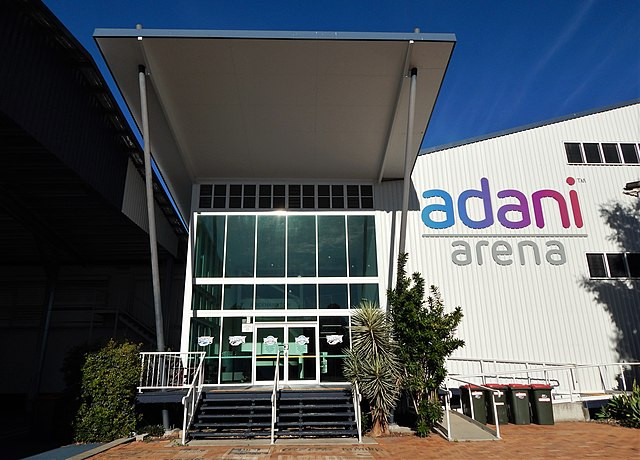Shares of the Adani Group, one of India's largest conglomerates, suffered another significant blow on Monday after a new report from U.S. short-seller Hindenburg Research accused the head of India's capital markets regulator of conflicts of interest that allegedly hindered a thorough investigation into fraud allegations against the company. The renewed scrutiny wiped approximately $2.4 billion off the market value of Adani Group companies, although this was a recovery from earlier losses that reached as much as $13.4 billion during the trading session.
The controversy centers on allegations that Madhabi Puri Buch, the chair of the Securities and Exchange Board of India (SEBI), and her husband, Dhaval Buch, previously held investments in offshore funds that were also used by the Adani Group. Hindenburg's report, published on Saturday, questioned SEBI's ability to act as an impartial regulator in the Adani matter. The report stated, "We do not believe SEBI can be trusted as an objective arbiter in the Adani case."
Both Madhabi Puri Buch and her husband have denied any wrongdoing, dismissing the report's claims as baseless. SEBI also issued a statement reaffirming that the allegations made by Hindenburg had been duly investigated and that there was no merit to the short-seller's accusations.
The Adani Group quickly rejected the latest claims, labeling the report a "red herring" designed to divert attention from SEBI's enforcement actions against Hindenburg. The conglomerate maintained that its overseas holding structure is fully transparent and compliant with all regulatory requirements.
The Adani Group, led by billionaire Gautam Adani, operates across a wide range of sectors, including commodities trading, airports, utilities, and renewable energy. The conglomerate has been under intense scrutiny since January 2023, when Hindenburg first accused the group of stock manipulation and corporate fraud, leading to a stock market rout that saw Adani's market value plummet by more than $100 billion. While the group's shares have partially recovered since then, the company's market value remains about $32.5 billion lower than before the initial Hindenburg report.
Despite the ongoing allegations, investments from Abu Dhabi-based International Holding Company and U.S. boutique investment firm GQG Partners have helped to restore some investor confidence in the Adani Group. However, the latest Hindenburg report threatens to reignite investor concerns and put further pressure on the conglomerate's stock prices.
Shares of Adani Enterprises, the group's flagship firm, fell as much as 5% in early trading on Monday before paring losses to close down 1.1%. Other Adani companies, including Adani Total Gas, Adani Power, Adani Wilmar, and Adani Energy Solutions, also experienced significant declines, with losses ranging from 0.6% to 4.2%. Only Adani Green Energy bucked the trend, closing 1% higher.
Analysts remain divided on the long-term impact of the latest allegations. Sunny Agrawal, head of fundamental equity research at SBICAPS Securities, described the market reaction as a "temporary, knee-jerk reaction" and expressed confidence that the situation would stabilize. However, Kranthi Bathini, director of equity strategy at WealthMills Securities, cautioned that the allegations against SEBI could have a short to medium-term impact on Adani stocks, particularly as retail investors grapple with the renewed controversy.
The latest developments have also sparked political debate in India. Bharatiya Janata Party lawmaker Ravi Shankar Prasad defended SEBI and dismissed Hindenburg's report as a "baseless attack" aimed at deflecting attention from the regulator's ongoing enforcement actions. In contrast, opposition leader Rahul Gandhi voiced concerns about the integrity of SEBI, stating on social media platform X that the allegations against its chairperson had "gravely compromised" the regulator's ability to safeguard the wealth of small retail investors.






